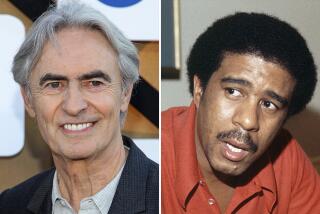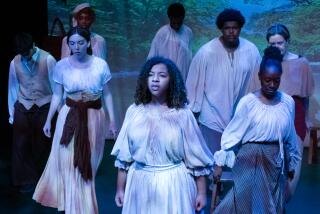PAUL SIMON--BRIDGING THE CULTURE GAP
- Share via
In the first essay in Calendar’s new Popping Off series, William K. Knoedelseder Jr. defended Paul Simon’s decision to record “Graceland” in South Africa, and to use South African musicians. Knoedelseder’s commentary, prompted by protests against Simon by students at Howard University, drew spirited response from readers. Here is a sampling of opinion, the overwhelming majority of which supported Simon’s actions. Popping Off is an occasional forum commenting on timely issues in pop music.
I was hoping your article would finally clear up the controversy. Unfortunately, not only were we deprived of the facts, but by focusing on the statements of one clearly overwrought sophomore at Howard University none of us was able to hear what Simon’s critics really have to say.
The U.N.-backed boycott of South Africa was not set up to be broken so that a few black South Africans might benefit from recording with Paul Simon. It was set up to aid all black South Africans in their struggle against apartheid.
No one will deny that “Graceland” is a special album, but to break this boycott in order to make it. . . . Will the rewards outweigh the damage? Can you violate the “letter” of a boycott and somehow avoid violating the “spirit” of it? By not criticizing Paul Simon’s actions and making excuses instead are we not inviting more violations?
If we remember what it took to fight segregation in this country I think we’d agree that whatever changes have come about they were not accomplished by simply listening to a record “50 or 60 times.”
ZOE WELLS
Los Angeles
Simon was removed last week from a list of artists who have broken the U.N. cultural boycott against South Africa.
More to Read
The biggest entertainment stories
Get our big stories about Hollywood, film, television, music, arts, culture and more right in your inbox as soon as they publish.
You may occasionally receive promotional content from the Los Angeles Times.










